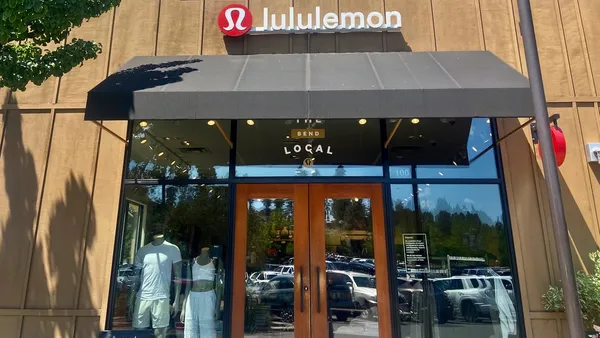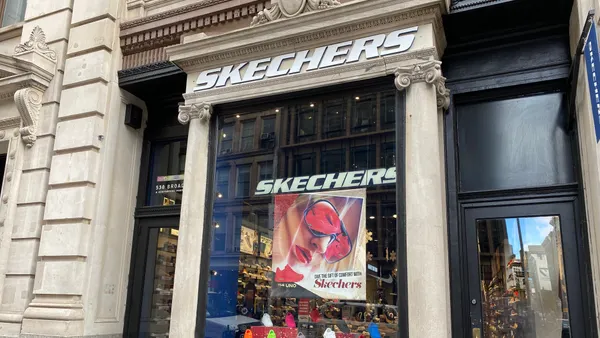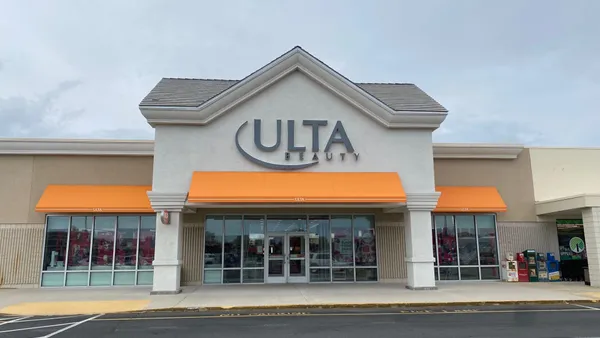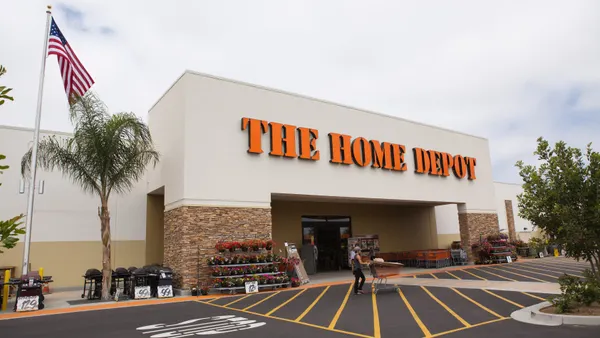Dive Brief:
- Bon-Ton is set to wind down after a bankruptcy auction for its assets drew only liquidation bids, according to Reuters, which cited unnamed sources. Attorneys and spokespeople for Bon-Ton did not immediately reply to Retail Dive's request for comment.
- The auction still had not ended by late Monday, Reuters reported. The news service noted that once the company selects a winning bidder and the federal court overseeing Bon-Ton's bankruptcy proceedings approves it, "the liquidator can begin selling the inventory, store leases, fixtures and intellectual property."
- Bon-Ton had been working with a group of investors including two mall developers on a going-concern bid. But last week the judge overseeing the department store retailer's case nixed a proposal to pay the investor group a fee of $500,000 to compensate them for due diligence costs. The group was not among the bidders at Monday's auction, according to Reuters' reporting.
Dive Insight:
The end could be near for Bon-Ton. If Reuters' report proves true, it would make Bon-Ton the first department store in years to liquidate.
An attorney for Bon-Ton said at a hearing last week that the investor group that signed a letter of intent with the retailer represented "the last and only opportunity for the debtors to continue operating in business." The fee, which the court rejected last week, was necessary to securing that bid, the attorney said.
A group of second lien bondholders had objected to Bon-Ton's request to pay the fee. Attorneys for the bondholders said in a Wednesday filing that Bon-Ton has "no intention of running a fair bidding process." (An attorney for the group could not be reached and did not immediately respond to Retail Dive's requests for comment.)
Last week, the court also cleared the way for the second lien bondholders to submit a bid that would wind down the company and liquidate its assets to pay off lenders. The bondholders have been pushing for the retailer to liquidate since Bon-Ton filed, seeing it as the only viable path to repayment given their dim view of the retailer's long-term prospects.
Bon-Ton filed for Chapter 11 in February after years of financial struggles. The company announced in April that it was in talks with a potential bidder for a going-concern transaction to buy at least a part of the company out of bankruptcy. Bon-Ton had received four bids for the retailer's assets, but all — except the letter of intent from DW, Namdar and Washington — contemplated the wind down of the company's business.
Liquidation, rather than reorganization, is the norm for retail bankruptcies, owing to the difficulties in securing lender support in the short timescale outlined by bankruptcy law for retailers to choose which stores to close — a critical decision that can determine their ultimate fate.
Most executives expect retail bankruptcies in 2018 to increase or keep apace with last year, according to a study from consulting firm BDO. S&P analysts have also noted that retail defaults could increase this year, as could liquidations. Moody's analysts said last week that retail defaults in the first quarter of this year hit an all-time high.
In short, retrenchment among department stores and specialty retailers is not over. The holes left by large chains such as Bon-Ton and Toys R Us will put market share up for grabs. (Morgan Stanley analysts have written that TJX Cos., Kohl's, J.C. Penney, Walmart and Sears all stand to gain from Bon-Ton's bankruptcy.) But the liquidation sales can also create problems for competitors, as liquidating inventory can create a drag on prices for everybody.













